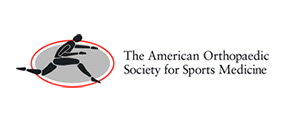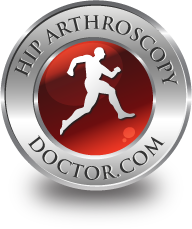
Pain After Hip Arthroscopy
Harvard Trained Orthopedic Surgeon Dr. Jon Hyman founded the first Hip Arthroscopy Center of Excellence in Atlanta. Over many years as the Medical Director for the Hip Arthroscopy Center, he has had the privilege of training other surgeons, locally and from abroad, how to perform hip arthroscopic surgery. Despite this, more and more patients are calling our office for second opinions after having had surgery and asking us to re-do the procedure because of persistent pain.
As the techniques have advanced, we have created new ways to treat hip pain and our ability to revise the hip procedures has improved. Nevertheless, the best case scenario is to try to fix the hip problem without surgery whenever possible, or if surgery is needed, fix it right the first time. We understand that it's hard to know who to trust, as every doctor's website makes it seem like the surgeon is qualified or experienced. Unfortunately, that's not often the case, which is why we are trying to help you sort things out ahead of time.
There are many reasons that people come to us for a second opinion after they find themselves still in pain after hip arthroscopy surgery. We've listed some of them below. We created this resource as a community service to help you understand your problem before having a procedure that doesn't fix the issue. Please discuss these issues with your surgeon. If you still find yourself in a predicament, feel free to send us your information in the usual manner on our SECOND OPINION page and we'll still do our best to take care of you.
The most common factors that can lead to persistent pain AFTER hip arthroscopy include things that were likely present BEFORE the hip arthroscopy: obesity, low back pain, S.I. Joint pain, Piriformis Pain, muscle imbalances, referred pain and pelvic pain from a variety of causes. However, there are many surgical or medical issues that can cause patients to suffer despite having had arthroscopic surgery on their hip.
Top 10 Reasons patients come to us for a 2nd Opinion / treatment when still having pain after hip arthroscopy:
1. Arthritis in the Hip
This is probably the biggest issue we see. The presence of arthritis in the hip generally reduces the chances of a successful result. Many patients we see with pain after hip arthroscopy had arthritis present before the procedure, and the arthritis persists and sometimes worsens. Hip arthroscopy is not useful for most arthritis, but sadly it most commonly done.
2. Unnecessary Surgery
On a frequent basis, we see patient's who had hip arthroscopy surgery when their pain was not actually coming from their hip and/or their pain could have been resolved without surgery. The patient still has pain after the surgery and in some cases, their pain is worse. It is important to fully understand the rationale and motivations for having a surgery.
3. Untreated Bony Impingement
We see many patients who've had hip arthroscopy and basically had a 'look and see' procedure or a 'debridement or cleanout' surgery. This is a procedure where the surgeon shaved tissue or smoothed out some rough spots. However, many patients have an underlying spur that needed shaving and therefore pain persists.
4. Labral Tears not Sewn, Re-tear
We see a lot of patient's who have labral tears in their hips and they have a surgery where the tear is trimmed but not repaired. The patient is under impression that the tear was repaired but there were no stitches placed in it. In some cases, the labrum will re-tear and cause ongoing pain. We typically suture the tears back together instead of removing it from the body.
5. Nerve Damage
We've seen many patient's who've had 4 - 6 punctures in their hip during their surgery (we most always use 2). Most portals heal uneventfully, but when there are so many, the chances of nerve damage (eg meralgia paresthetica), numbness, tingling and pain increase. Some patients have had nerve damage from being in traction for several hours. Our traction time is usually less than an hour.
6. Cartilage Damage from Surgery
Many times patients are unaware of the experience level of the surgeon doing their procedure. Surgical technique can cause harm to the body and cause cartilage damage that wasn't there prior to the surgery. Complications are not uncommon in hip arthroscopy for inexperienced surgeons because it's technically challenging. We often see chondral or cartilage defects and they are hard to see on an MRI.
7. Muscle Weakness
Sometimes muscle weakness is from incomplete rehabilitation / physical therapy. Other times, despite your best efforts, your muscles may not be recovering. One reason for this might be if you had procedures which can weaken muscles. The most common ones we see are the unnecessary release of the I.T. Band or the Iliopsoas tendon. Another possibility is weakness from unaddressed tissues in the peri-trochanteric space: the gluteus medius tendon and muscle.
8. Unrecognized Impingements
Few doctors are familiar with hip impingement. For the ones that are, most are only familiar with FAI (Femoroacetabular impingement - Pincer and CAM). There are many patients we see see who've been treated for FAI and still have pain from other more subtle types of impingement: Subspine Impingement, Trochanter Pelvic Impingement, and Ischiofemoral Impingement.
9. Scar Tissue, Adhesions
Hip arthroscopy can cause scar tissue. Multiple portals, large internal cuts in the capsule and excessive tightness or looseness can cause adhesions and pain after hip arthroscopy. Improper rehab can also lead to a build up of scar tissue. Sometimes scar tissue growth is genetic and beyond your control, but you want to take reasonable measures to prevent it.
10. Capsule and Ligament Issues
The ligamentum teres can be a source of pain and is difficult to see this on MRI. Multiple portals and large internal cuts in the capsule can lead to instability of the hip. This is also a risk with revision surgery or excessive bone shaving Caution must be used when handling these tissues as they bring blood supply and stability to the hip.
Dr. Hyman's extensive experience in re-operating on patients that seek his care after having a failed hip arthroscopy is consistent with published research:
1. Ward JP, Youm T, Failed Hip Arthroscopy: Causes and Treatment Options
2. Philippon MJ, Schenker ML, Briggs KK, et al. Revision hip arthroscopy. Am J Sports Med. 2007; 35(11):1918–1921
3. Heyworth BE, Shindle MK, .. Kelly BT. Radiologic and intraoperative findings in revision hip arthroscopy. Arthroscopy. 2007; 23(12):1295–1302.
4. Sampson TG. Complications of hip arthroscopy. Clin Sports Med. 2001; 20(4):831–835.
5. Clarke MT, Arora A, Villar RN. Hip arthroscopy: complications in 1054 cases. Clin Orthop Relat Res. 2003; 406:84–88.
6. Griffin DR, Villar RN. Complications of arthroscopy of the hip. J Bone Joint Surg Br. 1999; 81(4):604–606.
7. Simpson J, Sadri H, Villar R. Hip arthroscopy technique and complications. Orthop Traumatol Surg Res. 2010; 96(8 suppl):S68–S76.
I would like to thank you sincerely for the great care that you have provided me. I am deeply grateful to both of you and all your wonderful clinic and hospital team.
Dr. Hyman diagnosed my problem right away. I had surgery a couple of months later and now after 2 years I feel like a new person.
Since Dr. Hyman operated on my left hip I’ve been able to walk better, longer, and with better ease than I could ever imagine.
I thank God every day that I had that surgery since I have finally gotten rid of the pain that has kept me awake at night for years.
I appreciate you taking the time to educate me about my injury. I also appreciate the kindness and professionalism of the entire staff at Atlanta Sports Medicine.
Thank you so much from the bottom of my heart. For the first time in approximately a year and a half I am pain free.
I appreciate the attentive, professional care and could not envision a better experience. I truly am thankful to be under your care.







